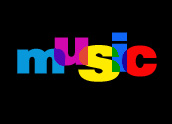
The last week of 2005 brought dizzying levels of digital downloads, as owners of newMP3 players rushed to fill those devices with music, and recipients of gift cards from top sites hurried to cash in their chits.
Nielsen SoundScan said 20 million tracks were downloaded during the week between Christmas and New Year’s Day, which more than doubled the record of 9.5 million set during the previous week.
Digital downloads for the full year reached 352 million, an increase of 147 percent over 2004 levels of 142.6 million, the firm said.
The rush wrapped a year that saw overall weak music sales, with digital downloads a rare bright spot. During all of 2005, 620 million CDs were sold, a drop of 7.2 percent from 2004 levels, according to the firm, which tracks sales at the point of purchase.
Despite the surge in legitimate downloads and the sea-change it hints at with respect to consumers’ online music habits, the numbers still pale compared to the amount of underground swapping that continues to occur online. As many as 250 million songs are swapped on peer-to-peer networks around the world each week, recent reports have estimated.
An Apple a Day
The data suggest legal digital music continues to find new fans, with low-end and high-end new devices from Apple — the iPod shuffle and the new video iPod — helping to drive much of the demand.
Some 15 songs surpassed the previous one-week record for sales of a single track, SoundScan said, with rap group D4L’s “Laffy Taffy” in the lead with 175,000 tracks sold — twice the previous one-week record.
While more legitimate downloads should be good news for the music industry, the trend may not bode well for the record labels. Because single songs sell well in digital form, sales of entire records are likely to plummet over time. Music labels have already let it be known that they believe the 99-cent per song price at most download sites — including the iTunes Music Store — is too low.
The numbers also support widespread anecdotal evidence that MP3 players — in particular Apple’s iPod line — were among the hottest tech gifts during the 2005 holiday season, and that gift cards were among the most popular items for the holidays.
In fact, many saw Apple as the big winner. Though the data did not break down where sales came from or in which format, Apple continues to dominate both the MP3 player market and the online music niche.
Some US$500 million worth of MP3 players were sold in the five weeks leading up to Christmas, research firm NPD Group estimates, which was up from 65 percent a year ago.
The strong sales are likely taper off, though, with record labels once again facing the challenge of trying to curtail piracy and boost CD sales.
Piracy Gains Seen
Getting a handle on the quantity of illegal sharing is difficult, with reports conflicting about whether it continues to grow or has slowed in response to the record industry’s aggressive campaign against swappers and the technologies that enable their activities.
File-sharers are being driven further into the Web underground by lawsuits and other actions, but aren’t giving up the practice, said Jupiter analyst Mark Mulligan. The music industry still faces the risk of having a generation of music lovers raised on free music, he added.
However, file-sharing dropped in the wake of the U.S. Supreme Court ruling that led to the shutdown and demise of the Grokster P2P network, according to the NPD Group.
The number of households illegally downloading songs fell 11 percent between June and October, the firm reported, reversing an upward trend in which more people were joining new P2P networks.
“If this trend continues into next year, it would signify a solid victory in the music industry’s efforts against illegal music file sharing in the U.S,” said NPD music industry analyst Russ Crupnick.






















































Social Media
See all Social Media